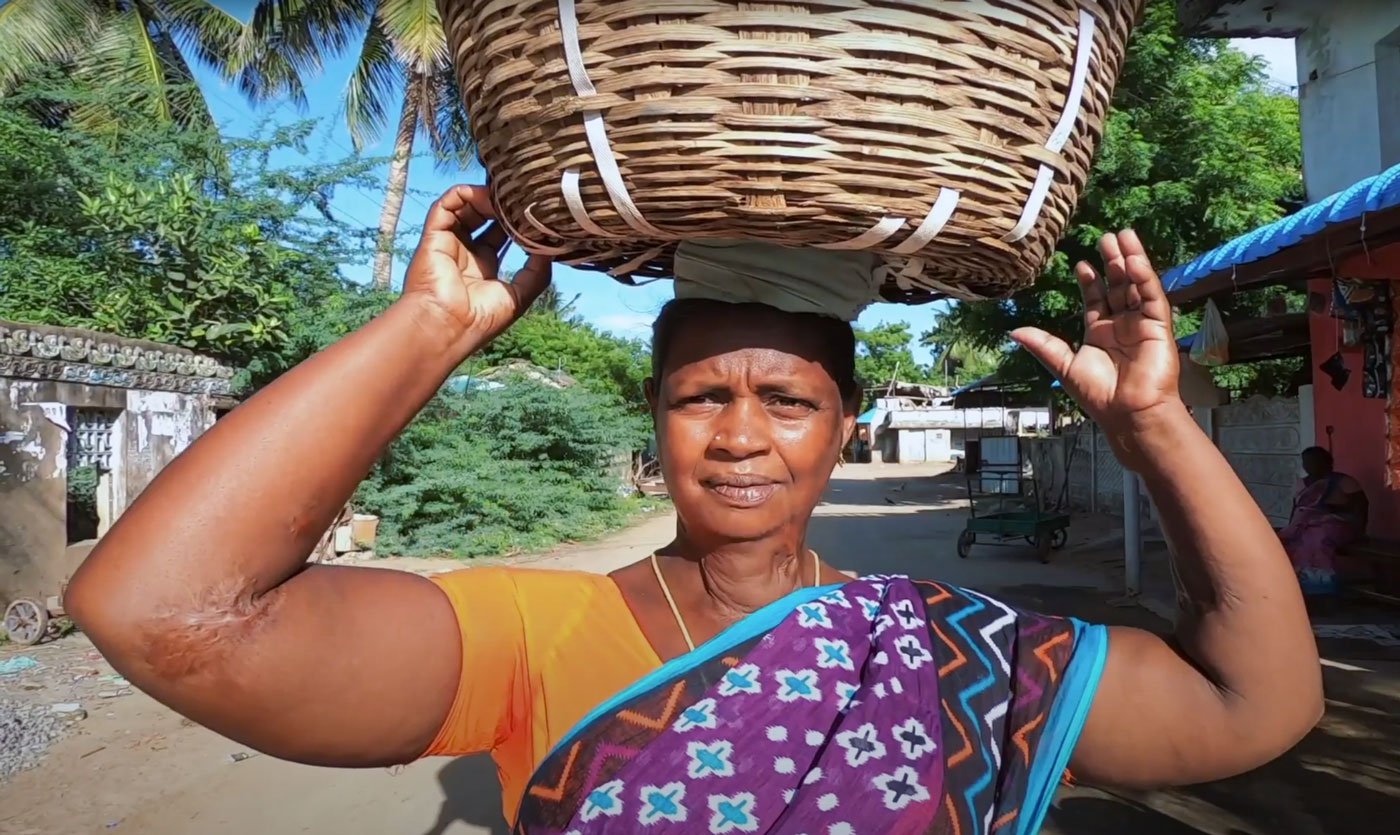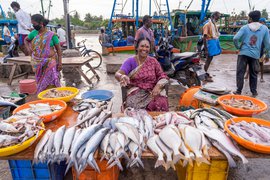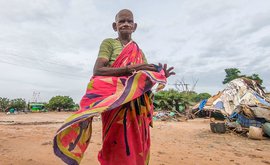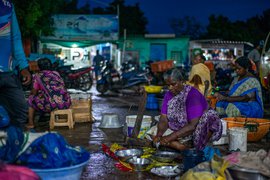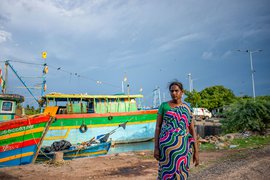“I feel stressed, but have to carry on, travelling long distances every day to earn a little and keep my family together,” says Senthil Kumari, 40, who travels at least 130 kilometres every day to sell fish. Her stress got worse during the Covid-19 lockdowns, when fishing, transport, markets, everything came to a standstill. “My debts are mounting. I am unable to buy a smartphone for my daughter to attend online classes. The burden is too much,” she says.
In Vanagiri, a fishing village in Tamil Nadu’s Mayiladuthurai district where Senthil Kumari lives, close to 400 women of diverse age groups are engaged in fish vending. The nature of their work varies: some carry baskets of fish on their head to sell in Vanagiri's streets, others travel to nearby villages by autos, vans or buses, and some even travel to other districts by bus to sell fish in the markets there.
Like Senthil Kumari, most of the women run their households on their earnings. Though they confront different challenges, they have all been hard-hit by the pandemic. Pushed to borrow from private moneylenders and microfinance companies just to meet the basic needs of the family, many are trapped in debt – with few possibilities for repaying the loans. To pay off one loan, they borrow elsewhere, and end up paying heavier interest rates. “I am unable to repay on time, and the interest is growing,” says Amutha, a 43-year-old fish vendor in Vanagiri.
The capital and financial requirements of women fish vendors, however, is not a subject addressed by state policy. And as unemployment of men has increased, more women, even from non-fisher communities, have started vending fish. This has increased the cost of fish, the cost of transport, and reduced returns. While earlier they might have earned a net income of Rs. 200-300 from a day’s vending, now it is no more than a hundred rupees, and sometimes even a loss.
Life is difficult for them, yet they carry on day after day, rising early to go to the harbour, buying fish, facing abuses, yet selling to their best abilities.
This story is part of a series of 25 articles on livelihoods under lockdown, supported by the Business and Community Foundation.
